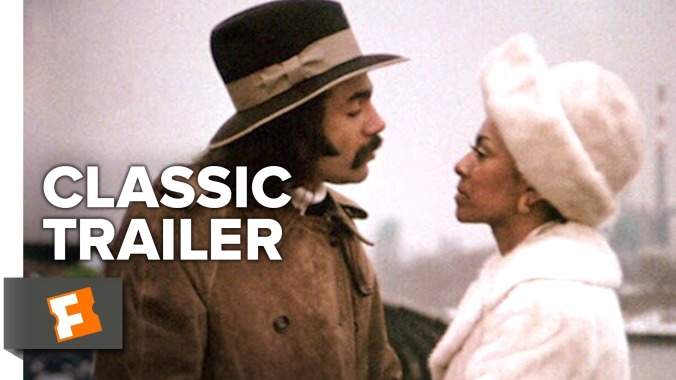The original Super Fly is more than a blaxploitation time capsule with a killer soundtrack

Watch This offers movie recommendations inspired by new releases or premieres, or occasionally our own inscrutable whims. With the remake of the blaxploitation classic Super Fly opening in theaters this week, we’re looking back on the genre’s 1970s heyday.
Super Fly (1972)
Watching Super Fly decades after its theatrical run, it could be easy to fall into a trap of treating it as high camp, what with its almost cartoonish slang, dated (yet awesome) fashion, and the most ostentatious Cadillac Eldorado ever committed to celluloid. But doing so would miss the coke-game forest for its wide-lapel trees. That probably doesn’t make any sense, but Super Fly remains great 40-plus years after it became an unexpected and controversial hit.
The story follows the familiar “one last score” trope common among crime films, as successful cocaine dealer Priest (the fantastic Ron O’Neal) plots his way out of the life through one final campaign: buy 30 kilos of top-quality blow with the $300,000 nest egg he and partner Eddie (Carl Lee) have accumulated, sell it over the course of four months, then leave the drug game forever with $500,000.
Problems develop before Priest can even take the first step: Eddie doesn’t share his desire to get out. “You gonna give all this up?” he tells Priest (while rocking an incredible orange suede jacket-and-pants combo). “Eight-track stereo, color TV in every room, and can snort a half a piece of dope every day. That’s the American dream!” Beyond that, it’s one of their only options to get ahead as black men in a racist country: “I know it’s a rotten game,” Eddie says. “It’s the only one The Man left us to play—that’s the stone-cold truth.”
Priest used to have that American dream. Later in the film, as he sits in the apartment of his side piece—a white coke-head who also discourages his plan to quit—he confesses that he thought he wanted everything around him: money, power, the attention of a woman who otherwise wouldn’t deign to be with someone from the ghetto. Now he’s not so sure. His black girlfriend, notably, wants him to quit the life immediately, without going for a big score. Priest isn’t having that, either:
“If I quit now then I took all this chance for nothing, and I go back to being nothing, working some jive job for chump change day after day. Look, if that’s all I’m supposed to do, then they gonna have to kill me, because that ain’t nothing.”
“What do you do when you get out?”
 Keep scrolling for more great stories.
Keep scrolling for more great stories.
